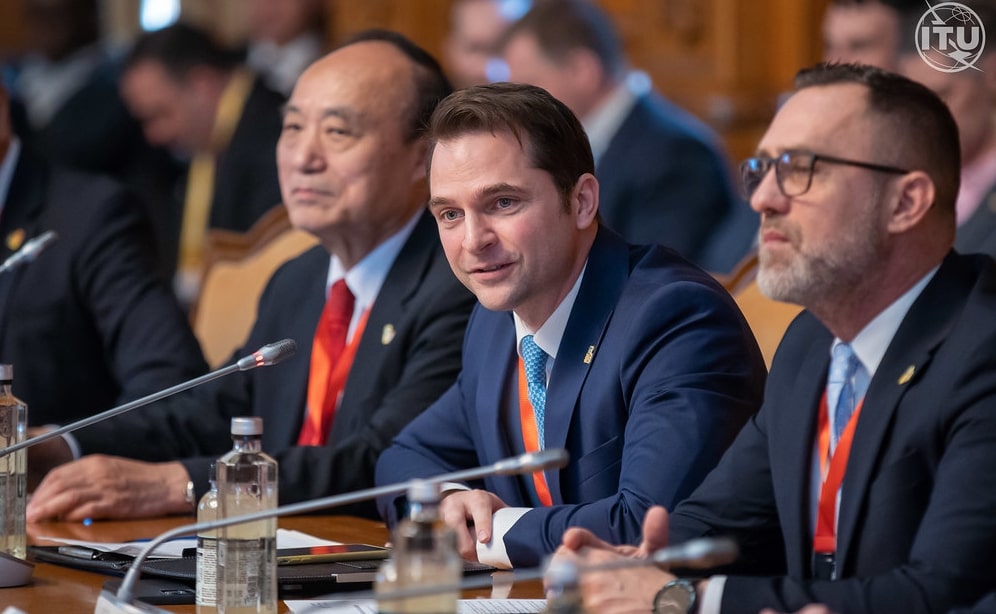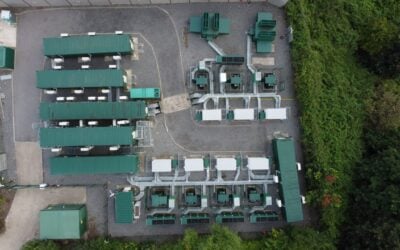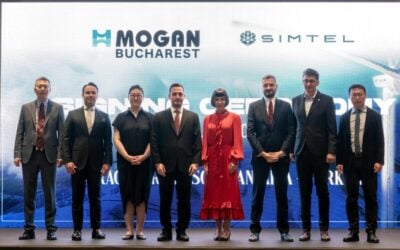
The Ministry of Energy of Romania has reopened a competitive solicitation for battery storage for the grid integration of renewable energy, seeking “at least” 240MW and 480MWh of resources.
The Ministry made its announcement yesterday (8 February), aiming to get the 2-hour duration battery energy storage system (BESS) facilities up and running by mid-2026.
Enjoy 12 months of exclusive analysis
- Regular insight and analysis of the industry’s biggest developments
- In-depth interviews with the industry’s leading figures
- Annual digital subscription to the PV Tech Power journal
- Discounts on Solar Media’s portfolio of events, in-person and virtual
A technical guide for selection criteria has been issued, with the call including funding for purchase of equipment and its installation, as well as construction of BESS assets. Bidders have until midnight on 21 March to respond to the call.
€79.6 million (US$85.7 million) in funding is available for the BESS projects. The call has been relaunched by the Ministry after an initial launch in 2023 had been expected to see projects selected by the end of last year. That original call had been for around 620MWh or more of storage, as announced by the Ministry of Energy in November 2022.
Funding has been enabled by the European Union (EU), through the bloc’s recovery and resilience planning facilities.
The national recovery and resilience plan (NRRP) of Romania was approved in a revised form in November 2023 that placed greater emphasis on clean energy technologies and green economic transition than its previous version. The new version took the clean energy funding requests from 41% of funding requested to 44.1% and brought it in line with the REPowerEU scheme for energy independence and transition.
Our sister site PV Tech has covered Romania’s solar PV market extensively.
Second call
The Ministry also announced a €199 million call to support Romania’s battery and solar photovoltaic (PV) manufacturing sectors, also funded through the NRRP, with €149.25 million for new battery production, assembly and recycling facilities.
At least 2GW of annual production, recycling or assembly of batteries per year will be brought online by that same 2026 mid-point, the government hopes. That could include any combination of electrode or electrode component production including recycling, and assembly of electrodes in batteries and testing and conditioning of batteries, again including recycling.
Meanwhile, the remaining €49.75 million is intended for new projects in Romania that would add solar PV cell and module (panel) production, assembly and recycling capacity to the tune of at least 200MW per year by mid-2026.
Bids could include any combination of polysilicon or wafer production, or assembly of finished cells and modules, including recycling.
Calls are open to any size of company that has appropriate experience with the technologies in line with the European Union’s CAEN codes for classification of economic activities in the fields of materials recycling, battery and accumulator manufacturing and manufacture of other electrical equipment.
These calls come just a few days after the EU committed to higher renewable energy and emissions reduction targets for 2040, which while not explicitly setting targets or strategies for energy storage, acknowledged that storage capacity will be a key element of achieving those goals.
They also come just as Germany, one of the EU’s economic leaders, is formulating its own national energy storage strategy. It will be interesting to see if similar avenues are taken by many other EU states, particularly in light of a scathing assessment by the Energy Storage Coalition that their National Energy and Climate Plans (NECPs) are falling short in that regard.
Romania is a little bit of an early adopter by standards of many central and eastern European (CEE) countries, having got its first grid-scale BESS installation online in 2018.
However, much funding including State Aid unlocked by the EU over the past couple of years will be directed towards clean energy efforts across the continent that include millions for storage projects in countries including Bulgaria, Slovenia and Hungary, with the latter winning approval for €1.1 billion in state aid to support large-scale storage projects in June last year.
At last year’s Energy Storage Summit Central and Eastern Europe, hosted by our publisher Solar Media, representatives of energy storage system integrator Fluence said that although the CEE market is at a very nascent stage, it holds the potential to ‘leapfrog’ other markets. Poland is thought to be especially advanced among markets in the region.






